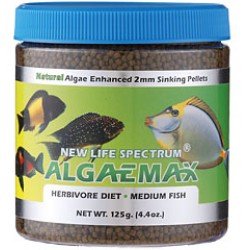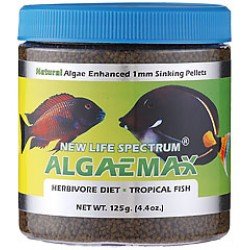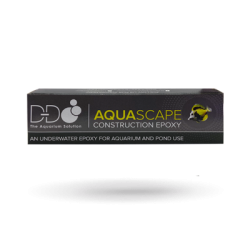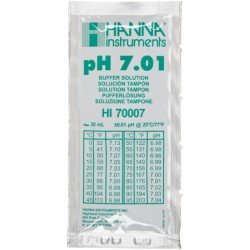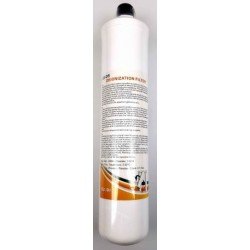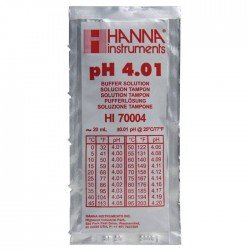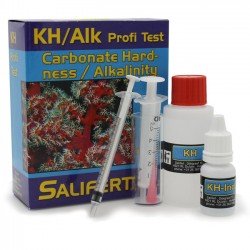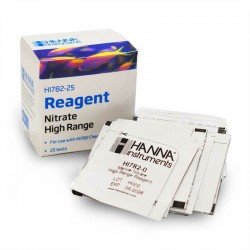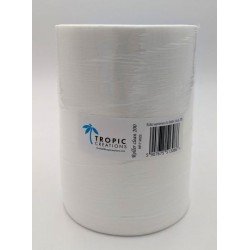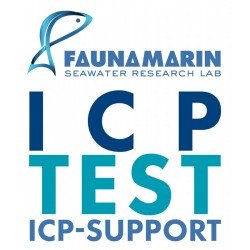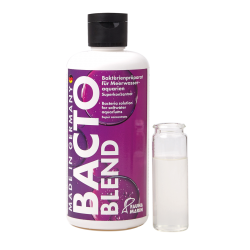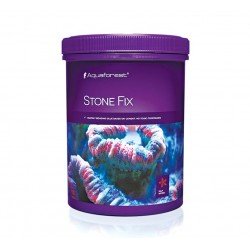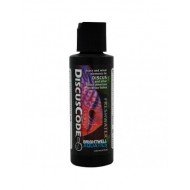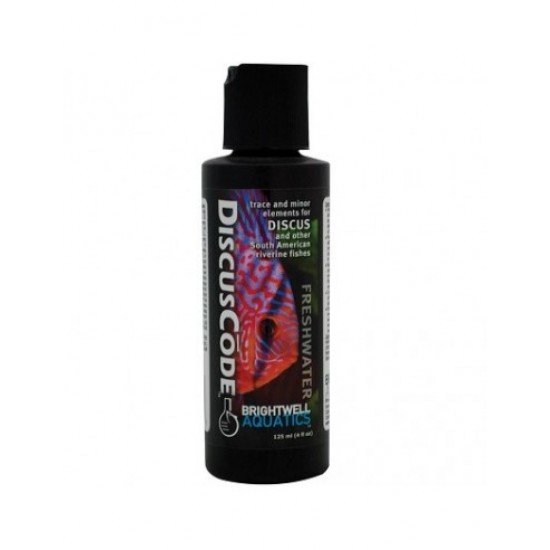
DiscusCode - trace & minor elements for discus (125ml)
6.90€
5.70€
- Stock: 2-3 Days
- Model: DSC125



Trace & Minor Elements for Discus & other South American Riverine Fishes
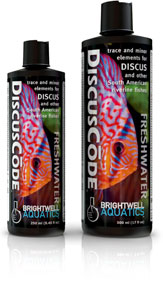
Overview
- Unique complex that provides trace and minor elements in ratios found to be beneficial
to discus and other fishes that share the same waters of origin - Provides minor and trace elements utilized in important neurological and metabolic
reactions, and which are incorporated into natural biopigments for coloration - Replaces minor and trace elements used by aquarium inhabitants, and which are lost
through chemical filtration (use of filtration media such as resins and activated carbon) - Composed of purified water and ultra-high purity materials
- Formulated utilizing extensive research on chemistry of the waters naturally-inhabited
by discus, as well as discus trace and minor element requirements
Sizes
125ml | 250ml
Technical Background
The role that trace and minor elements play with discus and other fishes is related to neurological and metabolic processes (in which these elements play critical roles), as well as overall coloration (trace and minor elements are often at the core of pigments known to enhance coloration). Dosing a trace and minor supplement with every water change performed is an effective method of delivering these substances for maximum benefit.
The role that trace and minor elements play with discus and other fishes is related to neurological and metabolic processes (in which these elements play critical roles), as well as overall coloration (trace and minor elements are often at the core of pigments known to enhance coloration). Dosing a trace and minor supplement with every water change performed is an effective method of delivering these substances for maximum benefit.
Discus are native to many of the quiet waters of the Amazon River basin, primarily inhabiting pools, small creeks, and streams of (primarily) blackwater habitats. Low pH (5.0+/-0.5), caused by lack of buffering molecules, and low conductivity are characteristic of these waters, and while it is often the goal of the newcomer to discus husbandry to maintain their fish in these natural conditions, attempting to do so can make their care somewhat more difficult than when allowing pH and conductivity values to be slightly higher. While the majority of discus available to hobbyists were wild caught as recently as 10 years ago, captive-raised (“tank-bred”) discus are the mainstay of the dedicated hobbyist today. As such, water conditions in which discus may be maintained are quite dissimilar to those of their native habitat, largely because of the ease of raising fish in the relatively hard, alkaline water that is characteristic of the United States and much of Continental Europe (where much of the discus breeding is done; water conditions in Southeast Asia, from where the majority of captive-raised discus originate, is also harder and more alkaline than is found in a blackwater habitat). Maintaining discus within the following ranges is recommended: pH 5.5 - 7.0; dGH 10 - 15; dKH 3 - 5; obtaining the water parameters in which your discus were bred (if not wild-caught) and maintaining them in these conditions is also a good practice to follow.
A number of popular ornamental fish species, such as Cardinal Tetras and other characins, Angelfishes, Festivums, and Uaru are often found in the same waters in which discus originate; hence, DiscusCōde may also be used in aquaria housing these fishes with equal success.
Instructions and Guidelines
Basic: Shake product well before using. Add ½ ml (~10 drops) of product per 25 US-gallons of aquarium water every other day. When used in this fashion, 250 ml treats up to 2,500 US-gallons (9,464 L). This dosage may also be used for freshwater community aquaria.
Basic: Shake product well before using. Add ½ ml (~10 drops) of product per 25 US-gallons of aquarium water every other day. When used in this fashion, 250 ml treats up to 2,500 US-gallons (9,464 L). This dosage may also be used for freshwater community aquaria.
